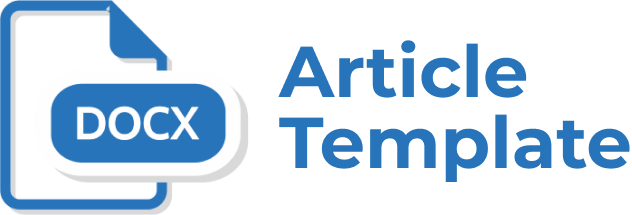Article Retraction, Correction, Removal, and Replacement Policy
Introduction
ALFIQH Islamic Law Review Journal is committed to upholding the integrity and accuracy of the scholarly record. While we recognize the meticulous efforts of authors in preparing manuscripts and the rigorous peer-review process, there are exceptional circumstances under which published articles may need to be retracted, corrected, removed, or replaced. This policy outlines the procedures and criteria for handling such cases to ensure transparency and maintain the trust of our readers, researchers, and librarians.
Article Retraction
An article may be retracted from ALFIQH Islamic Law Review Journal under the following circumstances:
-
Major Scientific Errors: If significant errors are identified that invalidate the article's conclusions, such as data fabrication or miscalculation, the article may be retracted. This includes errors that impact the reliability of findings, whether due to misconduct or honest mistakes.
-
Redundant Publication: If an article contains findings published elsewhere without proper cross-referencing, permission, or justification, it may be retracted for redundant publication.
-
Ethical Issues: Articles may be retracted due to ethical concerns, including plagiarism or inappropriate authorship.
Retraction Process
- Initial Review: The journal editor initially reviews the need for retraction, following the COPE flowcharts and guidelines.
- Ethics Advisory Board: The Ethics Advisory Board then reviews the editor’s findings to ensure consistency with best practices.
- Decision Communication: The final decision on retraction is communicated to the author and, if necessary, to other relevant parties, such as the author's institution.
- Retraction Statement: A retraction statement is posted online and published in the next available issue of the journal.
Note: Retaining copyright does not grant authors the automatic right to retract an article. COPE’s Retraction Guidelines apply to all cases.
Article Correction
Corrections may be issued in cases where:
-
Minor Errors: A small part of a publication contains flawed data or is misleading due to an honest error.
-
Authorship Issues: There are inaccuracies in the author or contributor list, such as the omission of deserving authors or the inclusion of individuals who do not meet authorship criteria.
Types of Corrections
- Publisher Correction (Erratum): Issued for critical errors made by the journal or publishing staff that affect the article’s integrity or the reputation of the authors.
- Author Correction (Corrigendum): Issued for significant errors made by the authors that impact the article’s integrity or reputation.
- Addendum: Added by the authors to explain inconsistencies, expand the work, or update information in the original article.
The decision to issue a correction is made by the editor(s), often with input from reviewers or editorial board members. Handling editors will request clarification from the authors if needed.
Article Removal
In exceptional cases, articles may be removed from our online platform if:
- Defamation or Legal Issues: The article is defamatory, infringes on legal rights, or is subject to a court order.
- Health Risks: The article poses a serious health risk if acted upon.
The article's metadata will be retained in such cases, but the text will be replaced with a notice indicating removal for legal reasons.
Article Replacement
When an article poses a serious health risk or contains significant flaws, the authors may retract the flawed article and replace it with a corrected version. The following procedure will be followed:
- Retraction: The flawed article will be retracted following the established process.
- Replacement: A corrected version will be published, with a link to the retracted article and a history of the document.
Commitment to Integrity
ALFIQH Islamic Law Review Journal is dedicated to maintaining the integrity and completeness of the scientific record. Corrections, retractions, and removals are carried out with strict adherence to best practices to ensure that our electronic archives remain authoritative and trustworthy.
Please contact the editorial office for any questions or concerns regarding this policy.








